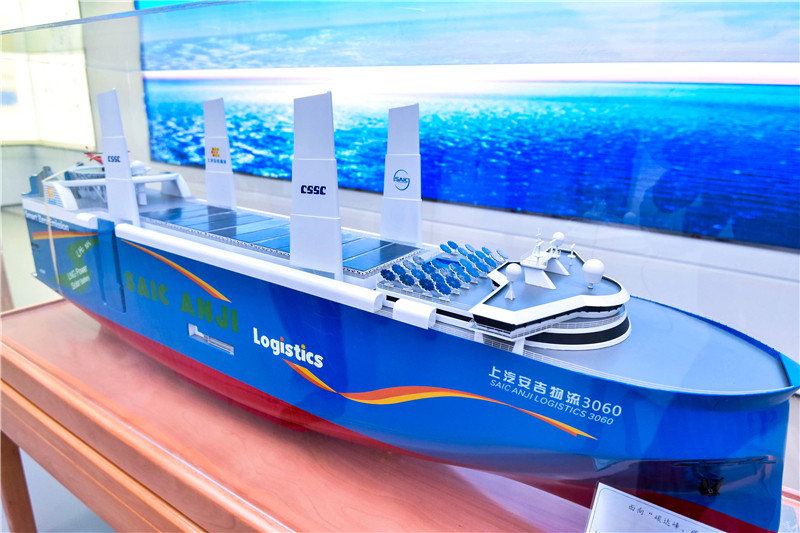The CSSC will now be incorporating dual-fuel power systems from Rongteng Automation, an industrial technology solutions provider, to power these new LNG carriers. The ships will be equipped with low-emission and high-efficiency engines that will reduce environmental pollution, lower energy consumption and eventually reduce carbon emissions.

Sichuan Rongteng Automation Equipment Co., Ltd., is a company that specializes in the natural gas industry since 1995. The company provides solutions and equipment for natural gas processing and treatment, including wellhead treatment equipment, natural gas conditioning equipment, light hydrocarbon recovery units, LNG liquefaction plants, hydrogen production units and gas generator sets.
The new ships will be able to transport a total of 7,000 automobiles across both vessel, which will be operated by a joint venture from United European Car Carriers (UECC). This international collaboration will ensure that the vessels will cater towards massive demand from the European market.
The new car carriers will be powered by a combination of marine diesel oil (MDO) and LNG dual-fuel engine systems, which will have a significant reduction in emissions when compared to traditional marine engines. This is in line with the regulatory requirements of the International Maritime Organization (IMO) and the shipping industry's drive towards reducing their carbon footprint.
With this recent order, CSSC is pushing the boundaries of innovation in the shipping industry. These new ships are not only equipped with cutting-edge technology but also represent a significant milestone for the global shipping industry towards a more sustainable future.
The adoption of LNG engines into the marine sector is rapidly increasing as an immediate solution to reduce harmful emissions. The world's busiest ports located in Europe and Asia, including the European Union and China, have toughened their emissions regulations, and there is now a considerable demand for environmentally friendly vessels by global shipping companies.
LNG is considered a viable alternative to conventional fossil fuels in the maritime industry, as it produces less CO2, SOx, and NOx emissions than other sources. This has created great interest in developing this technology and promoting the sustainable use of natural gas.
The inclusion of Rongteng Automation's technology in the new vessels is a testament to the company's commitment towards promoting eco-friendly solutions in the energy and industrial sectors.
The company has remained at the forefront of LNG technology development for the past decade, and they continue to design solutions that drive energy efficiency and sustainable power technologies. Their contribution to this project reflects their aspirations to move towards a global energy transformation, promoting clean and efficient solutions to support a brighter future.
The switch to LNG fuel is seen as a crucial step forward to achieve the International Maritime Organization's greenhouse gas (GHG) reduction goals. To stimulate the shift towards cleaner energy and to ensure that more businesses will adopt sustainable and eco-friendly solutions, the industry must make substantial investments in innovative projects.
The collaboration between CSSC and Rongteng Automation, is just one example of the type of partnerships that can be formed to drive forward green technologies and ensure a more sustainable industry.
The world's largest LNG Dual-Fuel Car Carriers developed by CSSC and Rongteng Automation will be making their way into the market in the near future. This cutting-edge technology designed for sustainability will be the future for ships that inhabit the world's oceans, promoting green transportation and providing a solution for regulated emission policies.